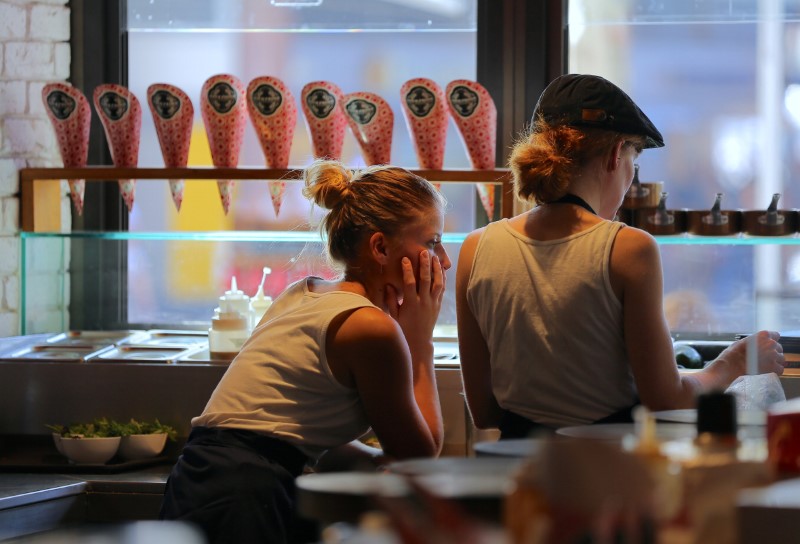Investing.com-- Australian consumer sentiment soured in early-November, a survey showed on Tuesday, as a recent interest rate hike by the Reserve Bank sparked renewed concerns over increased living costs.
The Westpac-Melbourne Institute Index of Consumer Sentiment fell 2.6% to 79.9 in November, remaining close to its worst levels since the COVID-19 pandemic.
Sentiment had improved in recent months, especially after the RBA kept rates on hold for an extended period. But the central bank raised interest rates earlier in the month and warned about stickier inflation, sparking a renewed deterioration in sentiment.
73% of the surveyed consumers expect mortgage rates to rise further in the next 12 months, up from 63% seen last month, Westpac said.
The weak data for November was an “ominous sign” for consumer spending, heading into the Christmas season, Westpac said. Nearly 40% of respondents said they planned to spend less on gifts this year- a trend that bodes poorly for the retail spending-heavy holiday season.
Consumers also grew more pessimistic about the housing market, but were slightly less pessimistic about the near-term outlook for the economy.
The RBAs’ 25 basis point hike last week was seen as largely dovish by financial markets, having sparked a rally in Australian stocks and a rout in the dollar. Specifically, traders said that Governor Michele Bullock struck a less hawkish tone than markets were expecting.
But Bullock still left the door open for future rate hikes, especially if Australian inflation remains sticky. While price pressures eased steadily from the 30-year peaks seen earlier this year, they saw an unexpected resurgence in the third quarter, due to higher oil prices.
Steady retail spending, thanks in part to a strong Australian labor market, has helped spur some growth in the Australian economy over the past year. But this trend may now be cooling, especially as consumer sentiment worsens.
The RBA has also forecast some cooling in the job market and broader Australian business activity, a trend that could further dampen consumer confidence towards the end of the year.
